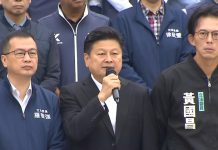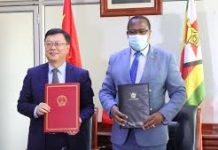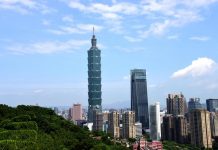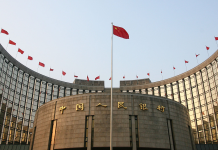BY Mahnoor Makhdoom
ISLAMABAD: As all-weather strategic cooperative partners, China and Pakistan have attached great importance to their industrial cooperation. Despite the COVID-19 pandemic, the smooth implementation of projects from the Rashakai special economic zone (SEZ) to MG automobile plant has deepened the industrial cooperation between the two countries.
Located in Pakistan’s northwest Khyber Pakhtunkhwa (KP) province, the Rashakai SEZ is one of the nine SEZs that the Pakistani government is going to develop under the China-Pakistan Economic Corridor (CPEC), which has entered a new stage of high-quality development focusing on industrial, agricultural and socio-economic cooperation.
Addressing the signing ceremony of the development agreement of the Rashakai SEZ in September of last year, Pakistani Prime Minister Imran Khan said his country was focusing on industrialization and would benefit from the development of the SEZs under CPEC which can attract Chinese industries and create job opportunities for Pakistanis.
The Rashakai SEZ, covering about 1,000-acre land, is being developed jointly by the China Road and Bridge Corporation (CRBC) and the Khyber Pakhtunkhwa Economic Zones Development and Management Company in three phases. At present, the construction and investment attraction work of the Rashakai SEZ is in progress.
“The construction of communication base stations in the Rashakai SEZ has started. After the Chinese Lunar New Year, a large number of Chinese technical staff will come to the zone to facilitate the construction. All the construction work for phase one including supporting facilities, is expected to be completed by June, 2022,” Lyu Ming, general manager of the CRBC, Pakistan said.
Considering Pakistan’s resources and market needs, the potential industries in the Rashakai SEZ are textile and construction materials, domestic appliance and food processing. To attract investors, the Pakistani government has introduced favorable policies for the zone enterprises, including a one-time exemption from custom duties for all imported machinery and income tax exemption for a period of 10 years.
The outbreak of the COVID-19 pandemic has made troubles for the investment attraction of the Rashakai SEZ. “Many enterprises were forced to cancel their original on-site inspection plans, and many investment promotion activities were also transferred to on-line platforms. However, as the COVID-19 situation in Pakistan is gradually brought under control, investors’ confidence is recovering,” Lyu said.
At present, an iron and steel enterprise from China’s Fujian Province has decided to set up a plant in the Rashakai SEZ with a total investment of about 70 million U.S. dollars, said Lyu, adding that the planned annual output for the plant is around 1 million tons of steel products while the basic construction of the plant has been completed and it is expected to be put into operation by the end of 2021.
“This is a momentous day for industrialization of KP as the first Zone Enterprise from China has been admitted to the Rashakai SEZ,” the Board of Investment of Pakistan said while talking about the iron and steel plant that will employ 1,000 manpower directly and indirectly. The Board of Investment said the Rashakai SEZ will create 200,000 direct and indirect jobs and attract 347 billion rupees (over 2.1 billion U.S. dollars) of investment.






